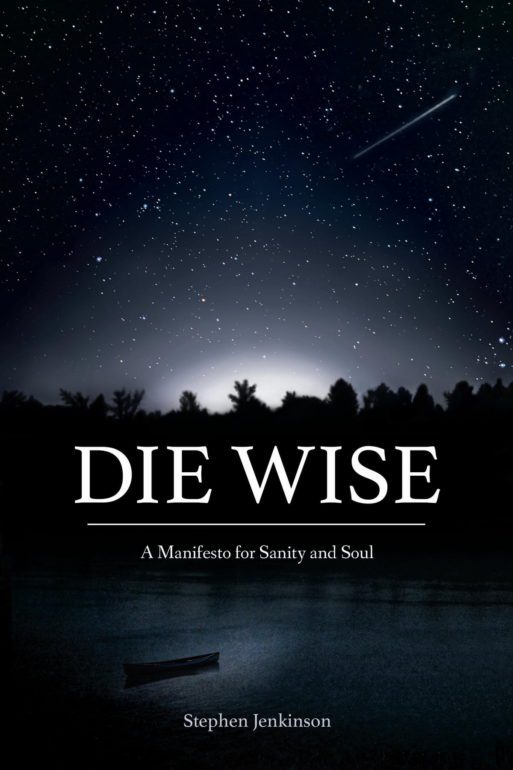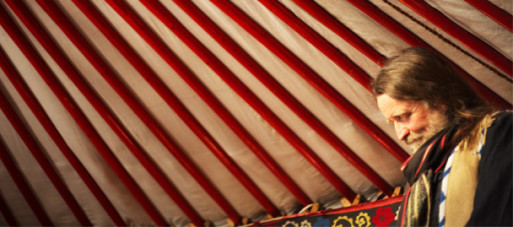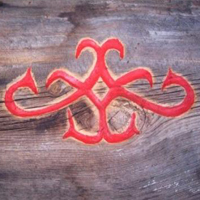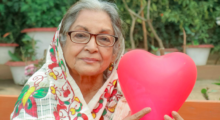 You and I will die. This is a given, entirely proper…. But the manner of our dying is not a given. That, with deep labour, is up to us. This is one of the life gifts entrusted to us at birth, dazzling as the night sky and burdensome as any vision is of how it all could be.
You and I will die. This is a given, entirely proper…. But the manner of our dying is not a given. That, with deep labour, is up to us. This is one of the life gifts entrusted to us at birth, dazzling as the night sky and burdensome as any vision is of how it all could be.
People die in the manner of their living. Lately that hasn’t been good, and we’ve wished otherwise for ourselves and for them. This is the DNA of dying though, that it faithfully bears the imprint of how we’ve carried our days and been carried by them. So there’s nothing more to wait for, no more portentous morning, auspicious afternoon, or providential night. This is what we’re granted, and we’ve been spared to see it.
This is how Stephen Jenkinson’s new book Die Wise ends, but it is also how it begins, as with any multi-generational consideration of the way things are, and how they must be. We are living in a time of great pain, anesthesia and ancestral forgetting that comes to an excruciating head whenever death appears in our lives — but it hasn’t always been so, and it need not continue. Die Wise teaches the skills of dying, skills that have to be learned in the course of living deeply and well. Die Wise is for “those who will fail to live forever”
Die Wise begins by questioning the familiar, tangible and contemporary: a critique of palliative care in Canada today, drawn from Jenkinson’s two decades as a social worker in what he calls “the death trade.” The first few chapters dissect the language of compassionate care: the training (or lack thereof) that is compulsory for medical and human services professionals; the life-oriented blind spot of the medical-industrial complex; and the ordeal of trying to die in a hobbling culture of “ancestral orphans” that refuses to embrace and honor death as a natural and necessary part of how life continues to go on.

Credit: orphanwisdom.com
Most of us today will die expected deaths, foreseen by doctors — medicated and pathologized. Many of us will fall victim to cheerleading about “hope” and “not giving up” instigated by the medical profession and taken up wholeheartedly by family members who know only this way of supporting a loved one who will not live forever. We will be encouraged to live, even while we are dying.
This, Jenkinson says, robs us all of the opportunity to witness the end of a person’s epic human journey and to celebrate that life goes on with them still in it, nourished by everything that had to die so that this is possible. Avoiding the process of death while your body is failing: this is dying-not-dying, he says. The result of dying-not-dying is fear of death and a sense of meaninglessness about life, about what your life has come to and what has become of it.
This “medicated, low-grade terror” that Jenkinson has witnessed many people experience in their dying time has several interrelated sources. One of them is the mainstream culture’s insistence on glorifying youth while hiding death, dying and aging from the public eye. So, when someone receives “the news” of their impending death, they come to it as an amateur, having never witnessed death or the process of dying and what that might be like. This is a fear of the unknown.
Another source of deathbed anxiety is that, as a direct result of the absence of death and aging in popular media, many people do not live with their deaths at the center of their lives. Constantly pushed aside by the medical industry’s manic focus on prolonging lifespan and its skewed notion of what “saving” a life means, death is culturally relegated to the sidelines. This means that, for many people, their impending death is “news.”
People who do not live as if they will die, as if life is delicate and short, and with the knowledge that the death of living things sustains their physical bodies every day, will likely encounter their dying time as something foreign and unwelcome. It will be seen as a disruption in their tidy plans for parenthood or retirement or their fairy tale future lives.

Orphan Wisdom insignia
(Credit: orphanwisdom.com)
Die Wise goes on to locate this cultural dissociation from death as a product of colonialism, asserting that it is not just those recognized as indigenous people, but all people who do not have ancestry originating from the land they call home who are deeply colonized. Reaching back before the so-called “discovery” of the Americas by European explorers, Jenkinson retells the whole 200,000 year human story in the context of mass migration.
One kind of migration stems from natural occurrences such as fire, flood and quake that force a people to relocate. The other kind of migration is human-caused, and it is this kind of migration that forces a people to leave the land that has given them sustenance, identity, culture and sense of meaning. It is this deep old hurt that Jenkinson asserts we must address in order to be ready for death when it comes to reclaim us.
Based on this understanding, Jenkinson offers up ideas on suicide and euthanasia, as well as how to incorporate children (including dying children) into this expansive understanding of “how it all could be.” Over and over again, he says that “the truth is painful, but it is a pain worth feeling and welcoming as a teacher, because it will teach you about the meaning of your life and your place in the Big Story. It is a small price to pay for living a life that is rich in meaning and beauty.”
Die Wise is one of those books that defines a generation: often sought after, but impossible to ask for. This is a book that articulates the inarticulate longing with which we search page after page of self-help and poetry for illumination, reading into the dark, early hours of dawn. Die Wise effectively splits time into two parts: the time before the world came to know it and the time after.
We are now in an age where we must strive to die wisely for the sake of ourselves and all who will hear the story of our struggle long after our lives have ended — a time that our ancestors have known, and that we are coming to know again, as faithfully as the death that awaits each and every one of us.
Stephen Jenkinson is the creator of the Orphan Wisdom school, and is featured in the documentary film Griefwalker.

 Die Wise by Stephen Jenkinson
Die Wise by Stephen Jenkinson


 Having an Estate Plan Is Essential – So Is Discussing It With Your Children
Having an Estate Plan Is Essential – So Is Discussing It With Your Children
 The Healing Sound of Singing Bowls
The Healing Sound of Singing Bowls
 “Summons” by Aurora Levins Morales
“Summons” by Aurora Levins Morales














